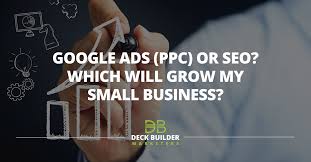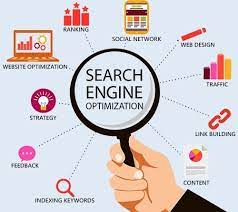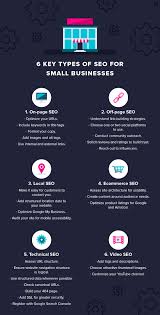Enhancing Business Visibility: The Power of Local Search Website Optimization
Local Search Website Optimization: A Key Strategy for Business Success
In today’s digital age, having a strong online presence is crucial for businesses of all sizes. One effective way to enhance your visibility and attract local customers is through local search website optimization. This strategy focuses on improving your website’s ranking in local search results, making it easier for potential customers in your area to find and engage with your business.
Understanding Local Search Website Optimization
Local search website optimization involves various techniques aimed at boosting your website’s visibility in local search engine results pages (SERPs). This includes optimising your website content with relevant local keywords, creating location-specific landing pages, and ensuring your business information is consistent across online directories and platforms.
The Benefits of Local SEO
By investing in local search website optimization, businesses can enjoy several benefits:
- Increased Visibility: Optimising your website for local searches helps you appear higher in results when users search for products or services in their area.
- Targeted Traffic: Local SEO attracts highly targeted traffic from potential customers who are actively looking for businesses like yours in their vicinity.
- Improved Conversions: By reaching out to local customers at the right time with the right information, you can increase conversion rates and drive more sales.
- Enhanced Brand Reputation: A strong presence in local search results builds credibility and trust among local consumers, strengthening your brand reputation.
Tips for Effective Local Search Website Optimization
To make the most of local SEO, consider implementing the following strategies:
- Optimise Your Google My Business Profile: Claim and verify your Google My Business listing, provide accurate information about your business, and encourage customer reviews.
- Create Location-Specific Content: Develop content that is tailored to the needs and interests of your local audience, including location-based keywords.
- Become Mobile-Friendly: Ensure that your website is mobile-responsive to cater to users searching for businesses on their smartphones or tablets.
- Cultivate Online Reviews: Encourage satisfied customers to leave positive reviews on platforms like Google, Yelp, or Facebook to build credibility and attract more customers.
The Bottom Line
In conclusion, local search website optimization is a powerful strategy that can significantly impact the success of your business. By focusing on improving your visibility in local search results and providing valuable information to potential customers in your area, you can drive more traffic, generate leads, and ultimately grow your business. Invest in local SEO today and watch as your online presence flourishes within your community!
Enhancing Local Presence: 8 Benefits of Optimising Your Website for Local Search
- Increased visibility in local search results
- Targeted traffic from potential customers in your area
- Higher chances of appearing in Google Maps results
- Enhanced credibility and trust among local consumers
- Improved online reputation through positive reviews
- Boosted foot traffic to physical stores or locations
- Cost-effective marketing strategy for small businesses
- Better conversion rates due to targeted local audience
Challenges of Local Search Website Optimisation: Navigating Time, Competition, and Technical Hurdles
- 1. Time-Consuming
- 2. Competitive Landscape
- 3. Algorithm Changes
- 4. Resource Intensive
- 5. Limited Reach
- 6. Dependence on Reviews
- 7. Technical Complexity
Increased visibility in local search results
Enhancing visibility in local search results through local search website optimization is a crucial advantage for businesses looking to connect with their target audience in specific geographic locations. By improving rankings in local search engine results pages, businesses increase their chances of being discovered by potential customers searching for products or services within their vicinity. This heightened visibility not only drives more targeted traffic to the website but also boosts brand awareness and credibility among local consumers, ultimately leading to increased engagement and potential conversions.
Targeted traffic from potential customers in your area
One significant advantage of local search website optimization is the ability to attract targeted traffic from potential customers in your area. By optimising your website for local searches, you can effectively reach users who are actively seeking products or services within their vicinity. This targeted approach ensures that your business is visible to individuals who are more likely to convert into customers, leading to higher engagement rates and increased opportunities for sales within your local community.
Higher chances of appearing in Google Maps results
Local search website optimization offers businesses the advantage of higher chances of appearing in Google Maps results. By optimising your website for local searches, including relevant location-based keywords and ensuring accurate business information, you increase the visibility of your business on Google Maps. This enhanced presence not only helps potential customers easily locate your business on the map but also boosts your credibility and trustworthiness among local audiences. With a strong position in Google Maps results, businesses can attract more foot traffic, drive conversions, and establish a prominent online presence within their community.
Enhanced credibility and trust among local consumers
Enhanced credibility and trust among local consumers is a significant benefit of local search website optimization. By appearing prominently in local search results, businesses demonstrate their relevance and reliability to potential customers in the area. When local consumers see a business listed at the top of search engine results for relevant queries, they are more likely to perceive it as trustworthy and reputable. This increased visibility not only boosts brand credibility but also fosters a sense of trust among local audiences, ultimately leading to higher engagement and conversion rates.
Improved online reputation through positive reviews
Enhancing your online reputation through positive reviews is a significant advantage of local search website optimization. By actively encouraging satisfied customers to leave feedback on platforms like Google, Yelp, or Facebook, you can build credibility and trust among potential customers in your local area. Positive reviews not only showcase the quality of your products or services but also help establish your business as a reputable and reliable choice within the community. This positive feedback can influence other consumers’ purchasing decisions and ultimately contribute to the growth and success of your business.
Boosted foot traffic to physical stores or locations
Local search website optimization plays a crucial role in boosting foot traffic to physical stores or locations. By optimising your website for local searches, you make it easier for potential customers in the vicinity to discover your business online and visit your brick-and-mortar store. This increased visibility in local search results directs more interested individuals to your physical location, ultimately driving higher foot traffic and increasing the chances of converting online interest into offline sales.
Cost-effective marketing strategy for small businesses
Local search website optimization offers a cost-effective marketing solution tailored for small businesses. By targeting local audiences through strategic keyword placement, location-specific content, and optimised Google My Business profiles, small businesses can enhance their online visibility without breaking the bank. This approach allows them to reach potential customers in their immediate vicinity, driving targeted traffic and increasing brand awareness within the local community. With its affordability and ability to deliver tangible results, local search website optimization proves to be a valuable investment for small businesses looking to maximise their online presence and attract local customers efficiently.
Better conversion rates due to targeted local audience
One of the key advantages of local search website optimization is the ability to achieve better conversion rates by targeting a specific local audience. By tailoring your website content and SEO strategies to attract users in your area who are actively seeking products or services like yours, you can significantly increase the likelihood of turning website visitors into customers. This targeted approach ensures that your business is visible to individuals who are more likely to engage with your brand, leading to higher conversion rates and ultimately boosting your overall sales and revenue.
1. Time-Consuming
Engaging in local search website optimization can be a time-consuming endeavour due to the continuous effort required to sustain and enhance your local search rankings. Consistent monitoring, updating of content, and adapting to algorithm changes are essential tasks that demand dedicated time and resources. This ongoing commitment to maintaining your online visibility in local searches can be a challenge for businesses with limited resources or those focusing on other core operations. The time investment needed for effective local SEO may pose a significant con for businesses seeking quick results or unable to allocate sufficient time to this crucial aspect of their online presence management.
2. Competitive Landscape
In the realm of local search website optimization, one notable drawback is the competitive landscape it presents. Particularly in saturated markets, engaging in local SEO can prove to be a daunting task as businesses strive to distinguish themselves amidst fierce competition. Standing out from competitors and capturing the attention of local consumers becomes a significant challenge, requiring strategic planning and innovative approaches to carve a unique space in the crowded digital arena.
3. Algorithm Changes
One significant drawback of local search website optimization is the challenge posed by algorithm changes in search engines. These frequent updates can have a direct impact on your local search ranking, often necessitating continuous adjustments to your optimization strategies. Keeping up with these algorithm changes demands vigilance and adaptability, as what may have worked effectively in the past could suddenly become less effective or even detrimental to your ranking. The dynamic nature of search engine algorithms adds a layer of complexity to maintaining and improving your local search visibility, requiring businesses to stay informed and agile in their approach to SEO.
4. Resource Intensive
One significant drawback of local search website optimization is its resource-intensive nature. Achieving effective local SEO results often demands investments in specialised tools, advanced technology, and expert knowledge. For small businesses with limited budgets, these costs can be prohibitive and challenging to justify. The financial burden of acquiring the necessary resources for successful local SEO implementation can pose a significant barrier, making it difficult for smaller enterprises to compete effectively in the digital landscape.
5. Limited Reach
One significant drawback of local search website optimization is its limited reach. By focusing on a specific geographic area, businesses may find themselves constrained in their ability to connect with a wider audience. While local SEO is effective for targeting local customers, it may not be as beneficial for businesses looking to expand their reach beyond their immediate vicinity. This limitation can hinder the potential for growth and outreach to a broader customer base, especially for businesses with products or services that appeal to a more extensive demographic.
6. Dependence on Reviews
One notable drawback of local search website optimization is the heavy reliance on customer reviews. Positive reviews are crucial for boosting your business’s credibility and ranking in local search results. However, the presence of negative reviews or a lack of reviews altogether can pose a challenge to your local SEO efforts. Negative feedback can deter potential customers and impact your reputation, while a scarcity of reviews may result in lower visibility and trustworthiness in the eyes of search engines. Managing and encouraging positive customer reviews becomes essential to navigate this con effectively and maintain a positive online presence.
7. Technical Complexity
One significant drawback of local search website optimization is the technical complexity involved. Implementing advanced local SEO strategies often demands a deep understanding of technical aspects such as website coding, schema markup, and server configurations. For businesses without the necessary expertise, navigating these complexities can be challenging and time-consuming. In some cases, seeking assistance from SEO professionals or web developers becomes essential, adding an extra layer of complexity and potential costs to the optimization process.








